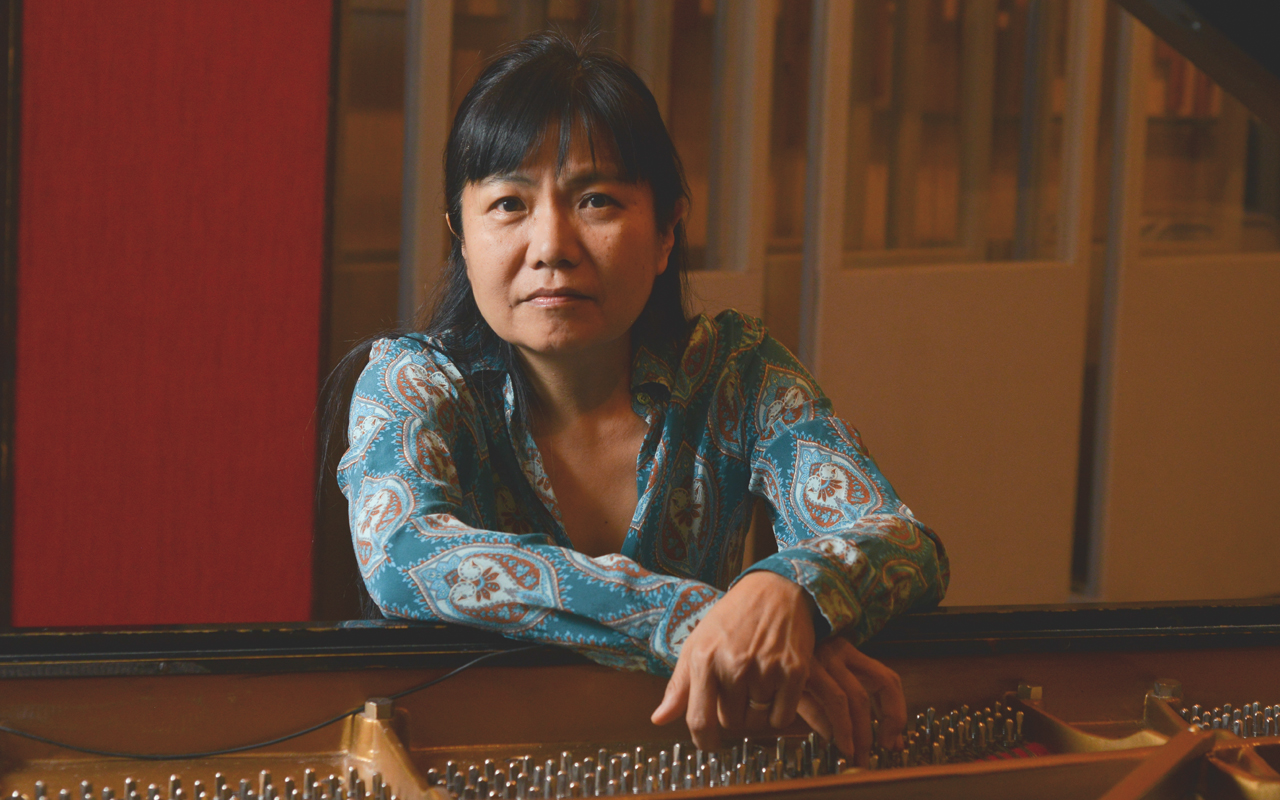
Satoko Fujii photo by Bryan Murray.
Tuesday, May 7, 7pm
Royal Room
5000 Rainier Ave S
A truly distinctive pianist, Satoko Fujii works in a vast array of settings, from solo to large ensembles, and is all the more ear-opening due to the elements of Japanese traditional and folk music she has infused into her sound.
That is in addition to elements from many musical quarters, from jazz to folk to rock. The result is a seamless, idiosyncratic output—by turns melodic, complex, and unleashed, or all three. Fujii has carved out for herself a distinctive place in avant-garde “what jazz has become.” She is as compelling as the likes of Cecil Taylor, Marilyn Crispell, and Matthew Shipp but draws from her own inspirations rather than falling into avant-jazz mannerism.
During 20 years in the spotlight, whether on the New York scene or traveling the world, Fujii has become “truly one of the few great originals on the piano today” (All About Jazz Italia), one who “can be said to meet expectations by upsetting them” (Coda). She merges conventional and experimental, “from lush melodic phrasing on the keys to haunting timbral excursions produced on the strings inside the piano” (San Francisco Weekly).
Fujii excels at leading groups of a variety of dimensions. She can draw on the classical traditions she studied as a child, the jazz she gravitated to as an adult, or the Japanese classical and folk traditions of her upbringing and musical training.
Culminating a childhood and youth under classical instruction, at the age of 17, she took up a scholarship to study performance and composition at Berklee School of Music. When she returned to Japan, she played for a few years in Japanese clubs while working as a session musician and instructor.
She returned to the U.S. in 1993 to study at the New England Conservatory of Music under the impressive likes of bandleader and theorist George Russell, bassist Cecil McBee, and pianist Paul Bley. With the last of those—himself one of the most distinctive and unpredictable of jazz keyboard stylists—she recorded her first album as a leader, Something About Water, in 1995, followed soon after by her solo Indication.
She has since recorded an astonishing 80 CDs as leader or co-leader, often with her husband, trumpeter Natsuki Tamura, but also in such settings as solo performance, large jazz orchestra, and small combos with the likes of violinist Mark Feldman, violinist Carla Kihlstedt, and fellow pianist Myra Melford. Between 1997 and 2009, her New York trio with bassist Mark Dresser and drummer Jim Black released seven CDs that were critically praised for their “improv delirium, hot grooves, and melodic dances” (Signal to Noise), and she has maintained that torrid pace of recording.
In 2001 Fujii joined with Tatsuya Yoshida of the Japanese avant-rock duo The Ruins to record five free-jazz-fusion quartet discs. JazzTimes hailed the first, Vulcan, for a “sensibility…aggressive to the point of primitive.”
Also riveting have been Fujii’s adaptations of Japanese folkloric musical approaches with the Satoko Fujii Min- Yoh Ensemble with Tamura, trombonist Curtis Hasselbring, and accordionist Andrea Parkins stupendous, almost terrifying,” responded All About Jazz.
Equally highly praised have been Fujii’s now-numerous large ensembles. Bob Rusch in Cadence called her “the Ellington of free jazz.”
Kira Kira, a quartet of evolving membership, is among the latest of Fujii’s many active projects. During the last two years she has taken it to cities in the U.S., Japan, Australia, and New Zealand, always incorporating a performer or two from visited locations. On her Seattle date, her accompanists include not only the equally impressive trumpeter Kappa Maki and the other-worldly soundscapes of electric keyboardist Al Martin, but also the Northwest’s own protean percussionist, Greg Campbell.
One of the performances of the year seems guaranteed.–Peter Monaghan
Advance Tickets: $20 ($18 Earshot Members & seniors, $10 students & military), ; Day of Show $25 ($23 Earshot members & seniors, $10 students & military.